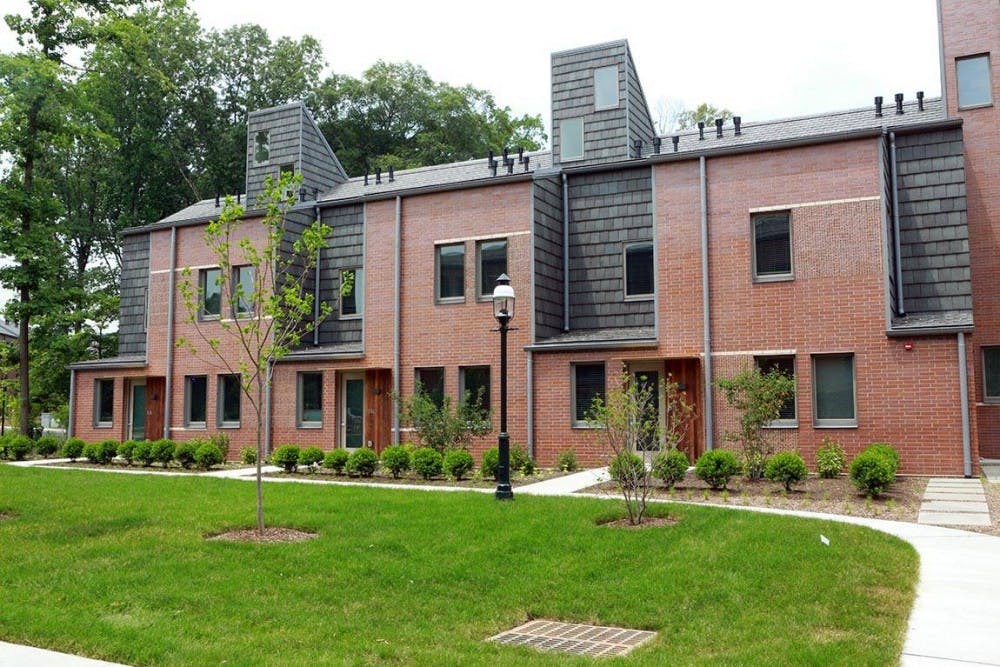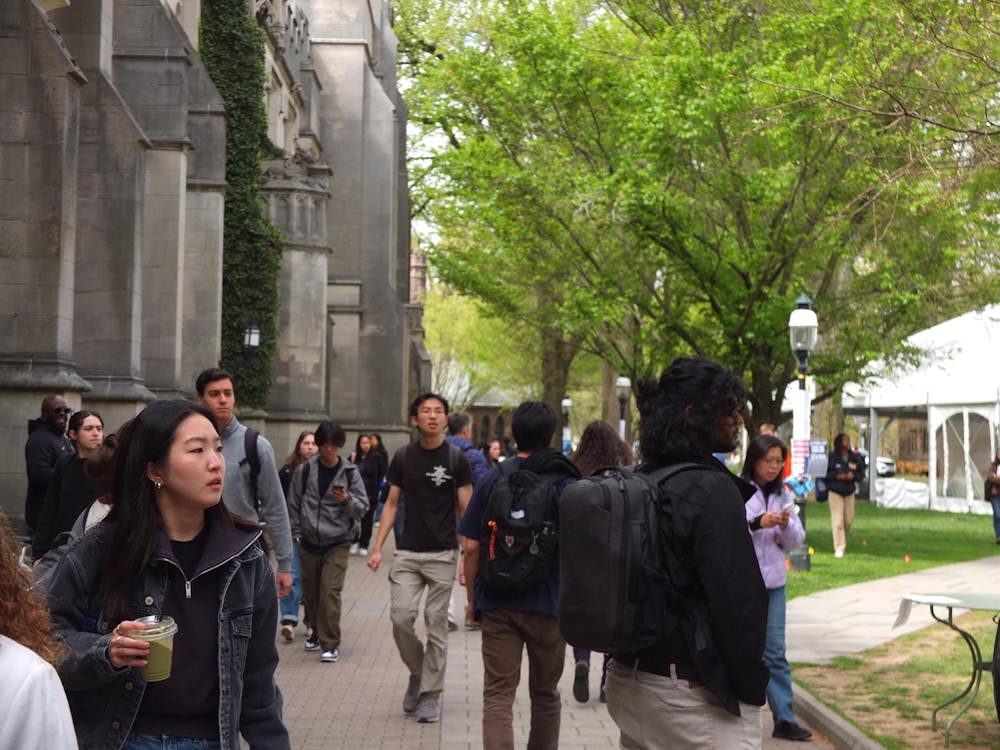Thomas Johnson ’22 and Tyler Eddy ’21 are both married and have children — Johnson has a two-month-old, while Eddy’s child is two-and-a-half years old. Before moving to Princeton in the fall both had requested two-bedroom apartments in the pet-friendly portion of Lakeside Apartments.
These two students have had disparate experiences in obtaining adequate accommodations. While Eddy and his family was able to move into a pet-friendly two-bedroom, Johnson and his family ended up in a one-bedroom that was not pet-friendly and proved to be a difficult living situation.
Johnson, a new father, was thankful to have moved into his apartment a week prior to scheduled move-in to prepare for his child’s birth the upcoming week. Deshawn Cook, Butler College’s director of student life at the time, was sure to let Johnson know that his family was welcome to come to First Year Residential Experience events.
However, while the University was welcoming, it was far less knowledgeable about the housing options available for Johnson and his family. He reached out to the University after being accepted to discuss housing options but the process was confusing, he said.
“There wasn’t clear communication at first. I know that Princeton is dealing with a shortage of housing overall, so that was a difficult process to coordinate with the housing office,” Johnson said. “We did end up in a one-bedroom, which is slightly difficult with a newborn, and originally our housing wasn’t pet-friendly, so I had to go through the Office of Disability Services to register my dog as an assistance animal.”
Johnson said he had to leave his second dog with his wife’s parents in Colorado before the move due to the lack of pet-friendly housing.
Johnson, an army veteran, previously attended Pikes Peak Community College and Tompkins Cortland Community College, earning an associate’s degree in general studies. Eddy attended Ivy Tech Community College, served in the Marines, and received an associate’s degree in general studies mathematics and science from Palomar College prior to attending the University.
Eddy was offered pet-friendly housing to accommodate his two cats just after he applied. Eddy, who is the head of the Undergraduate Veterans Association, and Keith Shaw; the University director of veterans, non-traditional, and transfer student programs; attempted to help Johnson with his pet issue, but the two said their efforts were fruitless.
Unlike Johnson, Eddy has a two-bedroom apartment for himself, his wife, and his daughter. Eddy also claimed that he is guaranteed the same apartment for next year, citing a housing policy that applies to all graduate students with children.
Eddy commented that the community of students with children is currently in talks with University administration to try to standardize the room allocation process.
“If you have a family with kids, the norm should be two-bedroom, not one-bedroom,” Eddy said.
University Deputy Spokesperson Michael Hotchkiss explained the factors that influence housing assignment, such as students’ class year and family configuration.

“Students with a spouse can generally be accommodated in a dorm,” Hotchkiss said. “Children are not permitted to reside in dorms, so students with children are assigned to available graduate housing.”
“Pets can only be accommodated in a limited number of units,” he added.
Joshua Wallace GS, president of Tigers with Cubs, a support group at Princeton for graduate students and postdocs who currently have or are expecting children, found fault with the University’s lack of accommodations for undergraduates with children, including the requirement for students to live on campus the first two years.
“What surprised me is that these problems exist at all,” Wallace said. “My undergraduate university, the University of Utah, has a lot of ‘nontraditional’ students. A lot of commuters, a lot of families, a lot of older students, and there was lots of married student housing. There was more than enough space for anyone that wanted it, the prices were reasonable, and the housing was set up in a ‘family-friendly’ way.”
The University says it is going to expand graduate housing with a campus expansion.
“Planning for the graduate student housing at the Lake Campus has been underway for some time. The current schedule has the Lake Campus graduate student housing available for occupancy for academic year 2022–23,” Hotchkiss wrote in a statement to The Daily Princetonian.
“A goal of the project is to provide housing that can be used flexibly (for single students and families) to meet the evolving needs of the graduate population,” University Director of Housing Dorian Johnson added in a statement.
Regardless of promises for future improvements, the University does not seem to be addressing current student issues, Thomas Johnson remarked.
“They made promises to me when I decided to come to Princeton. I am in a one-bedroom apartment with my wife, daughter, and dog and am now being told a two-bedroom apartment will not be ‘guaranteed’ until my daughter is two. This was after the fact that they ‘guaranteed’ it to me when she turned one. They claim to be addressing the needs of the student while completely ignoring legitimate grievances,” Johnson said.
Hotchkiss declined to address these specific situations but noted that the University is working “hard to meet the housing needs of all our undergraduates using the limited campus housing stock.”









